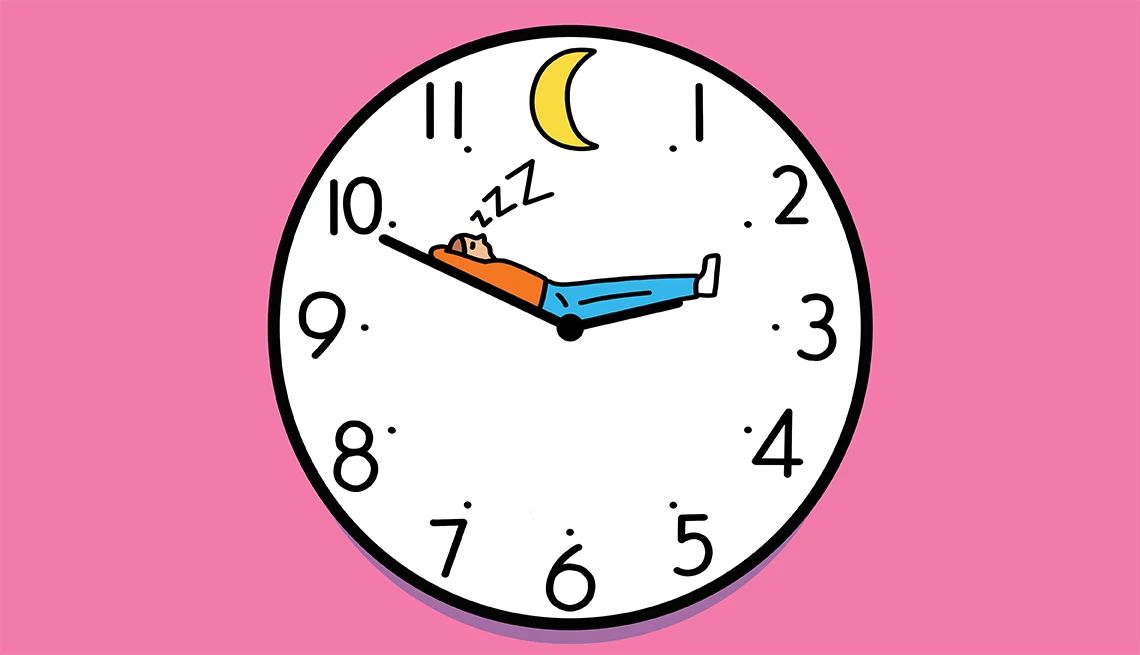AARP Hearing Center


A healthy gut helps support your immune system, regulate your body weight and blood sugar, tamp down inflammation, boost your mood, and may even sharpen your memory, according to recent research. That’s largely because your gut is home to a complex community of microbes that interact with nearly every system in your body, says William Chey, M.D., chief of the division of gastroenterology and hepatology at Michigan Health.
“The heart and brain are certainly important, but it is becoming increasingly clear that the gut is really the center of the human universe,” Chey says.
As we get older, natural changes in our bodies, along with certain medications and lifestyle shifts, can increase our risk of digestive issues such as bloating, acid reflux and constipation. That makes paying attention to your gut health more important than ever, Chey says.
Fortunately, you can give your gut the boost it needs, and alleviate many common digestive issues, with a few simple changes. From the foods you eat to your bathroom habits, these 25 research-backed tips will help you build a stronger gut and feel better from the inside out.
1. Prioritize high-fiber foods
If there’s one gut-friendly habit that doctors agree on, it’s eating more fiber. Think whole grains, beans, lentils, vegetables and fruits like apples, pears and berries. While your body can’t digest fiber, it does play a key role in digestive flow. “Think of it as what your colon grabs on to to push everything along,” says Reid Ness, M.D., a gastroenterologist and associate professor of medicine at Vanderbilt University Medical Center. A comprehensive 2023 review that analyzed 11 meta-analyses found that every additional 10 grams of fiber eaten per day was linked to a 44 percent drop in the risk of stomach cancer.
Fiber intake also decreased the risk of colon cancer and rectal cancer by about a quarter. High-fiber diets have also been shown to help prevent constipation and lower your risk of common gut conditions like diverticulitis, acid reflux, ulcers and irritable bowel syndrome (IBS). Men over age 50 should aim for 28 grams a day, while older women should get at least 22 grams, according to U.S. dietary guidelines. Here’s a sample day that would hit that goal: Two cups of oatmeal (8 grams fiber) with chia seeds (5 grams) and blueberries (2 grams) for breakfast; a sandwich on whole-grain bread (4 grams) with avocado (5 grams) and lettuce and tomato (1-2 grams) for lunch; and brown rice (3.5 grams) with black beans (7 grams) at dinner.
2. Eat fermented foods regularly
Fermented foods are packed with probiotics, the good-for-you bacteria that keeps your gut microbiome in balance, says Fola May, M.D., a gastroenterologist and associate professor of medicine at the David Geffen School of Medicine at UCLA. Probiotics can help boost your immune system and prevent gut issues such as diarrhea, constipation and ulcerative colitis, according to the National Center for Complementary and Integrative Health.
If you’re new to fermented foods, ease in with yogurt, May suggests. Look for brands labeled “live and active cultures” that are low in added sugar. Other good starter foods are fermented cottage cheese and kefir, a type of drinkable yogurt. Or pick up some kimchi, kombucha or sauerkraut, all boldly tangy and gut-friendly. (Another type of food, called prebiotics, contains nondigestible fibers that feed the probiotics in your gut, helping them thrive. Prebiotic foods include garlic, bananas and onions.)
3. Crunch on crucifers
Cruciferous veggies (also called brassicas) like broccoli, Brussels sprouts, cauliflower and kale get a bad rap for causing gas, but they are great for gut health, says May. They’re loaded with fiber, vitamins and minerals, and research shows they contain unique components that nourish beneficial gut bacteria. A 2025 meta-analysis of 226 studies found that eating 5 to 6 servings of cruciferous vegetables a week was linked to a significantly lower risk of cancer, especially colorectal cancer. If you find these veggies give you bloating or gas at first, start with smaller portions, May suggests; many people find that the side effects ease as their bodies adjust.
4. Drink plenty of water
Water helps break down food, keeps the digestive tract moving and prevents constipation, Ness says. Staying hydrated is especially important if you take a medication that dries you out, such as a diuretic, an antihistamines or certain blood pressure drugs. A 2024 study published in the journal iScience found that not drinking enough water disrupts the balance of bacteria and reduces the number of immune cells in the gut, making it more vulnerable to infection. While hydration needs vary from person to person, Ness recommends aiming for at least 2 liters of fluid a day, or about eight 8-ounce glasses. (For more, read Do You Really Need 8 Glasses of Water a Day?)


5. Embrace your coffee habit
Your morning cup of joe isn’t just a great way to wake up — it’s also nourishing your gut. In a November 2024 study published in Nature Microbiology, researchers analyzed stool samples from 22,867 participants and found that regular coffee drinkers had higher levels of a specific beneficial gut bacteria strain. Researchers said plant compounds in coffee, called polyphenols, may encourage the growth of these helpful microbes. And yes, decaf counts: The researchers found the same benefits in those who drank decaf. Caffeinated coffee can also be a natural remedy for constipation because it stimulates the colon, May says.
6. Minimize ultraprocessed foods
Highly processed foods are loaded with added sugars, unhealthy fats and artificial additives that can interfere with normal gut function, gastroenterologists say. They’re also low in fiber, leaving your gut microbes without the fuel they need to thrive. A 2022 study published in The BMJ divided men into groups based on their processed food intake and found that those who consumed the most had a 29 percent higher risk of colorectal cancer compared to those who consumed the least. To support gut health, Chey recommends a Mediterranean diet, because it has “consistently been shown to be the healthiest diet in terms of helping to groom the microbiome.” (For tips, see What Is the Mediterranean Diet?)
7. Cut back on meat
Red meat like beef, lamb and pork can be a good source of protein and iron, but research suggests consuming too much may raise your risk of colorectal cancer. For example, researchers analyzed data from about 70,000 people and found that those who consumed more red meat faced a 30 percent increased risk of developing colon cancer, according to a 2024 study. The American Institute for Cancer Research (AICR) advises eating no more than 18 ounces of red meat per week — that’s about three portions the size of a deck of cards.
Cooking methods matter, too: Try to avoid charring the meat, which can produce harmful compounds tied to cancer. Also, think twice before reaching for that ham and cheese sandwich. Processed meats such as deli meats, salami, bacon, hot dogs and sausages are linked to as much as a 40 percent higher risk of colorectal cancer, and they also increase the risk of stomach cancer, according to a 2024 meta-analysis of 27 studies. In fact, the World Health Organization (WHO) classifies processed meat as a Group 1 carcinogen — the same category as tobacco — due to consistent evidence that it causes cancer in humans. (The WHO notes that this doesn’t mean processed meats are just as dangerous as tobacco-smoking, but that the strength of the evidence warrants this classification.)
Ness notes that nitrates and nitrites, the preservatives commonly used to cure meats, are themselves carcinogenic, and studies indicate that they damage DNA and promote inflammation. While the occasional slice of salami is probably fine, Ness suggests treating processed meats as a once-in-a-while indulgence, not a daily staple.










































































You Might Also Like
25 Processed Foods That Are Surprisingly Healthy
Surprising health benefits of processed foodsHow to Do the Number One Exercise for Belly Fat
How to relieve back pain, improve posture and balance and make your belly fat healthier
Smart Guide to Reducing Inflammation
31 ways to tamp down the chronic condition